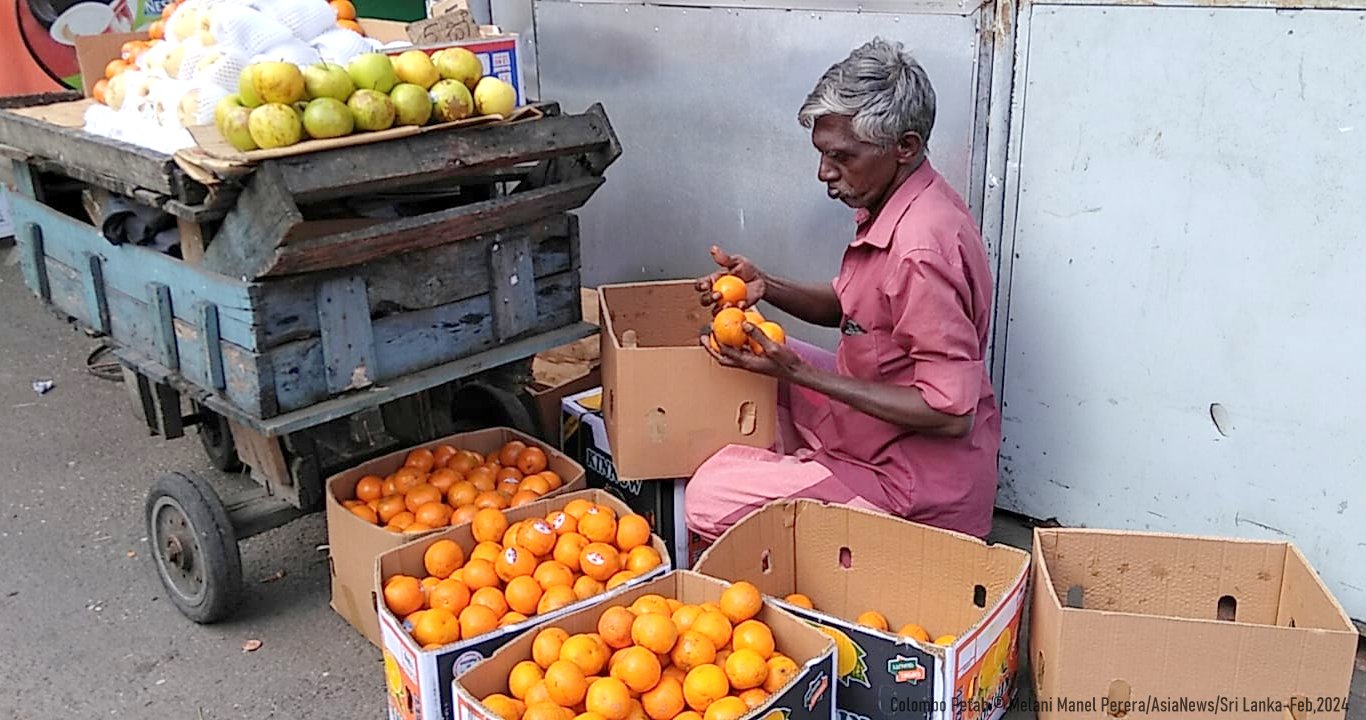The sad New Year of Colombo’s poor
The economic crisis is being felt by street vendors for Avurudu, the national holiday celebrated in these hours that marks the beginning of the year for both Sinhalas and Tamils.
Colombo (AsiaNews) – “We cannot afford to celebrate the Sinhala and Tamil New Year with joy. This year is more difficult than previous years. We don't have adequate daily income, it's difficult to buy new clothes and food. It's not a New Year's Eve for the poor."
These are the comments that were gathered in the Sri Lankan markets in recent hours while the country celebrated the Avurudu festival which marks the beginning of the new year for both the Buddhist and Hindu communities. The national holiday was a sad experience for the poor, who pay increasingly hard for the impact of the economic crisis.
“Although it is difficult to save, in the past we saved some of what we earned during the year planning to celebrate New Year's Eve in April. But after Covid, the revenue decreased little by little and there was no prosperity. This year is a loss for everyone," Saranapala Kasturi, a 58-year-old Sinhala Buddhist, fruit seller at the Colombo Fort Pedestrian, tells AsiaNews.
Saranapala, a father of three school-age girls, reaches the heart of the capital by bus from Homagama every morning at 5.
He takes two boxes of oranges from the fruit wholesaler and sells them on the pavement. In the past, he used to sell 4 boxes of fruit a day and leave Colombo at 4pm with 3000-4000 rupees.
"Today, to sell a box and a half of fruit, I have to shout until I taste blood in my throat, and at the end of the day I had to go home with 1000 rupees - he says again -. There are hundreds of people like me on this sidewalk. All we have left is sadness."
According to traders, most people have no money to spend this New Year. “Kavum, athirasa, kokis, aasmi: when people hear the prices of sweets they turn away. If once he bought 10 to 25 for each item, today he only buys one for one person,” Mabel Felicia, 60, who sells sweets at the Jaela public market, told AsiaNews.
Nadarasa Rasamani is a 45-year-old tricycle driver with two young children. He lives in a rented house in the Wattala area with his elderly mother, father, wife and two children. He said business is no longer business as usual.
Every day, at 6 am, he stops his three-wheeler near Hemas Private Hospital in Wattala and sells breakfast to people on their way to work until 8.30 am.
“We cannot afford to buy sweets and new clothes for our children or gifts for our parents - comments Nadarasa -. None of us want to take out a loan to do them. That's why my wife and I have sadly forgotten Avurudu."
11/08/2017 20:05







.png)










